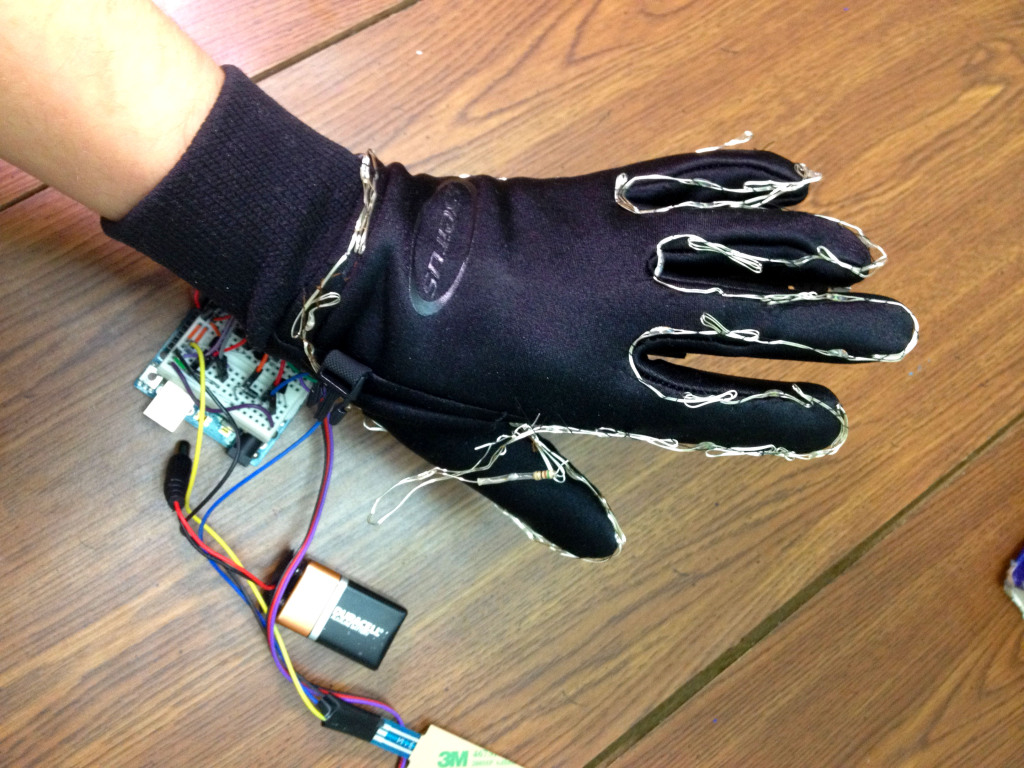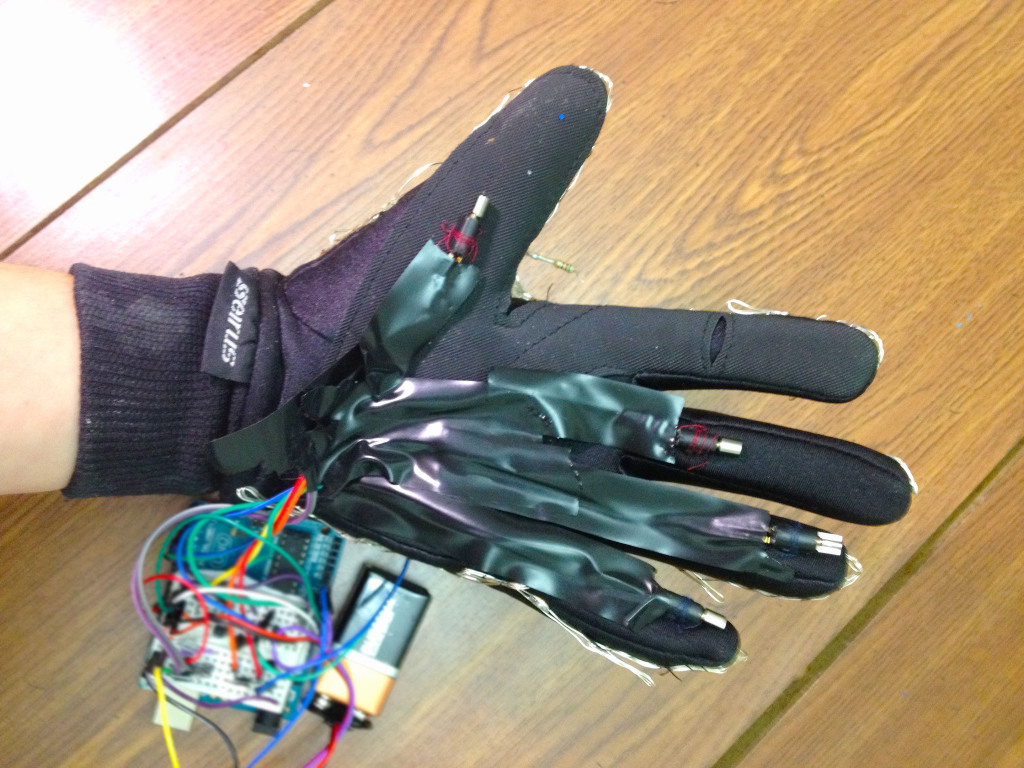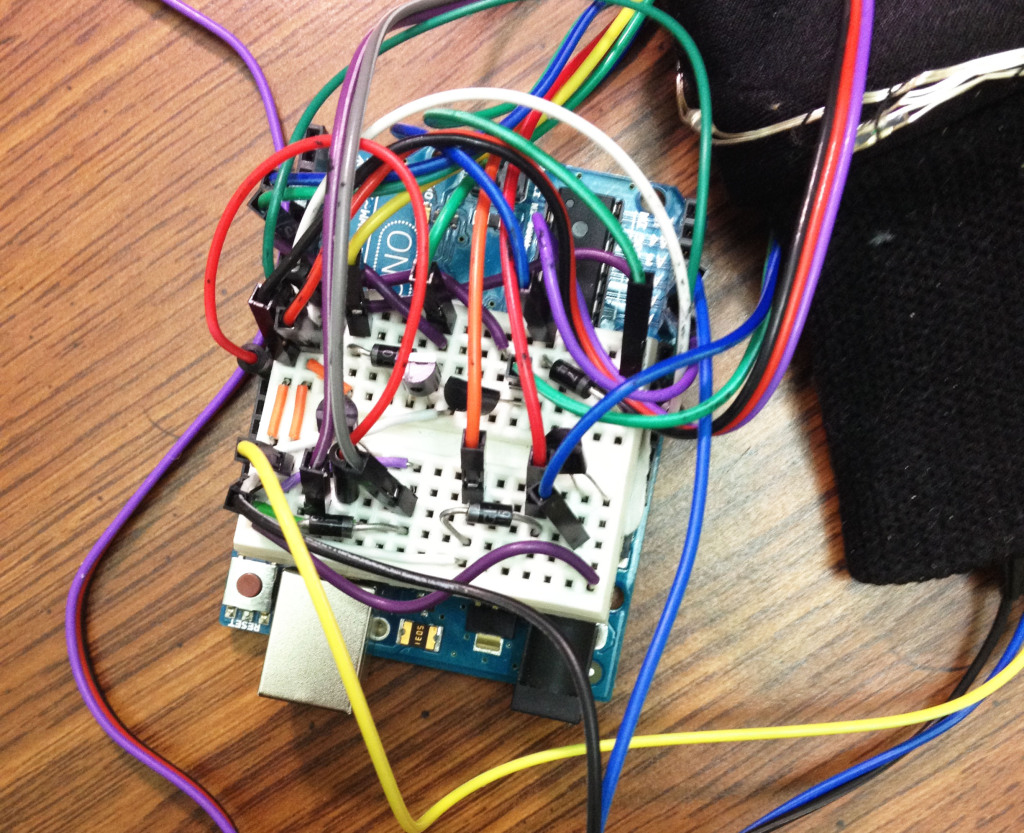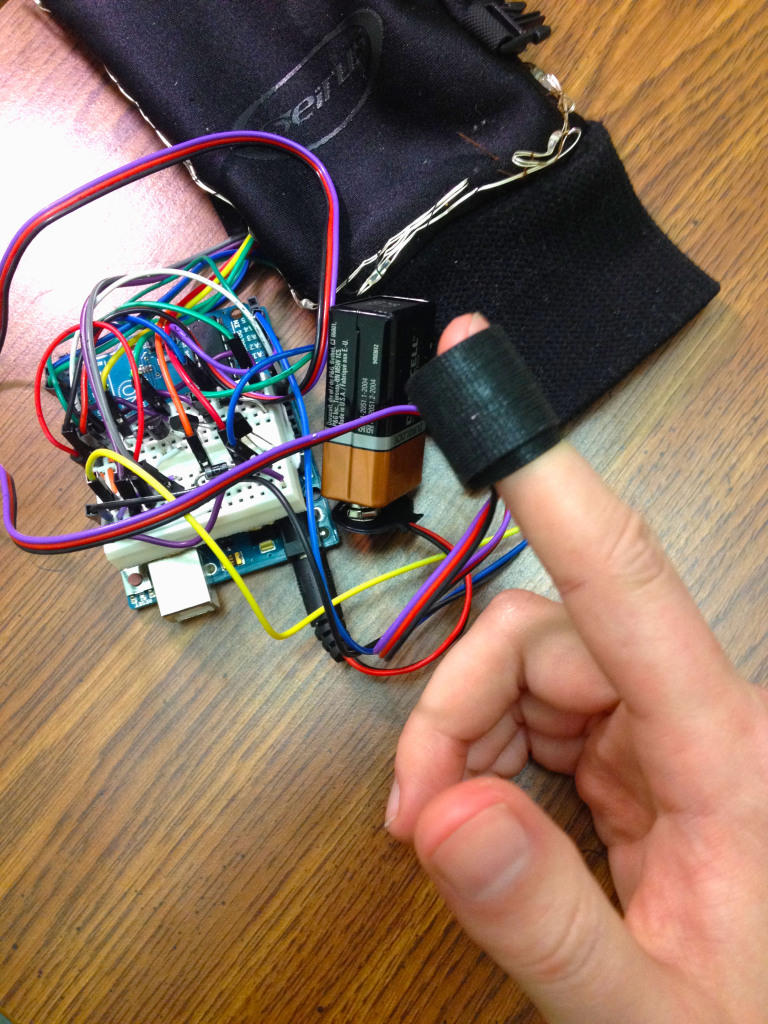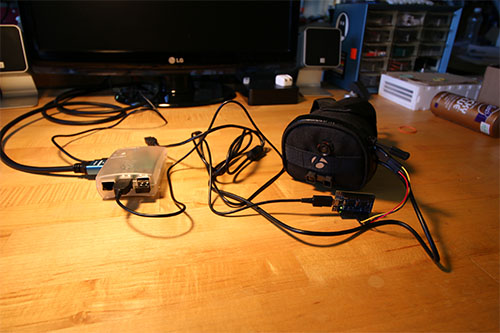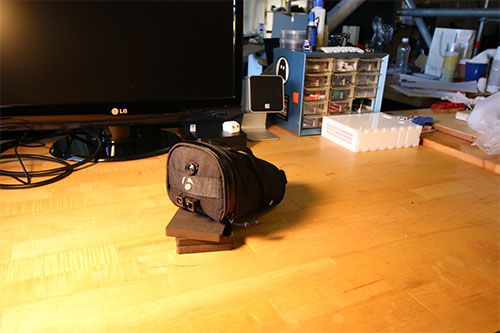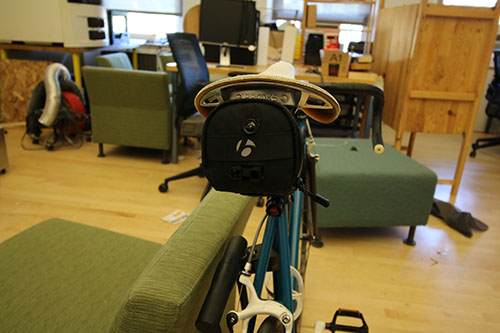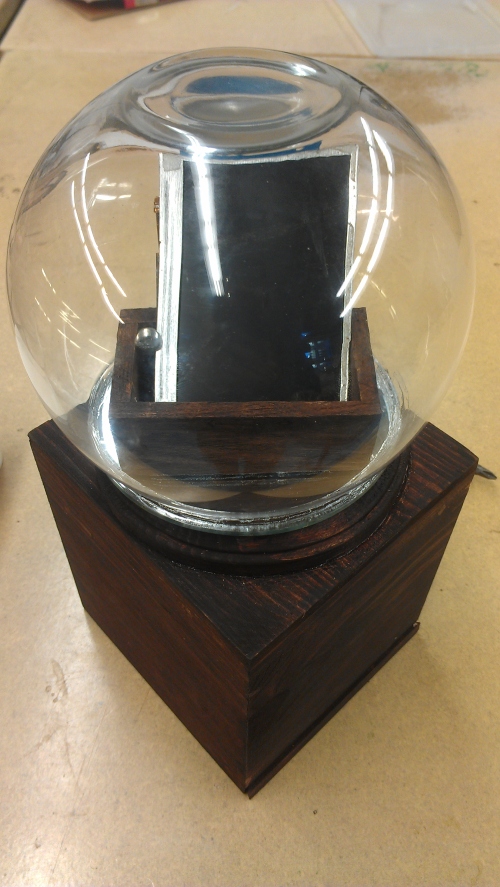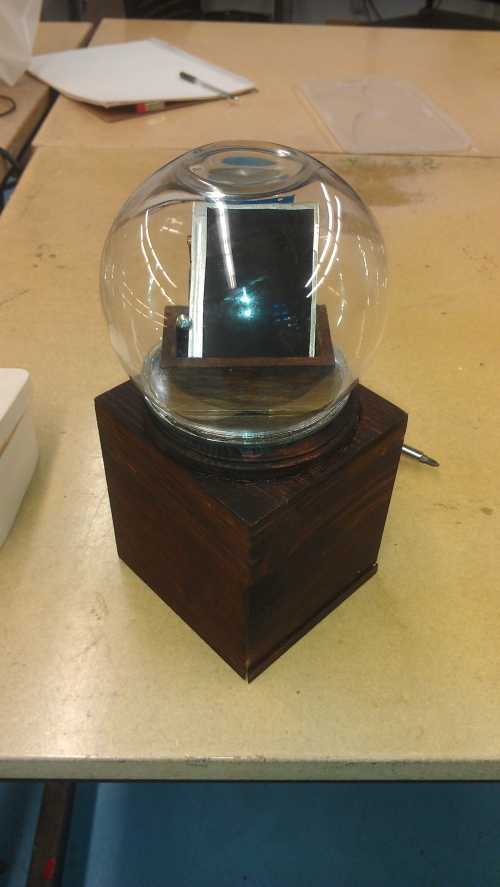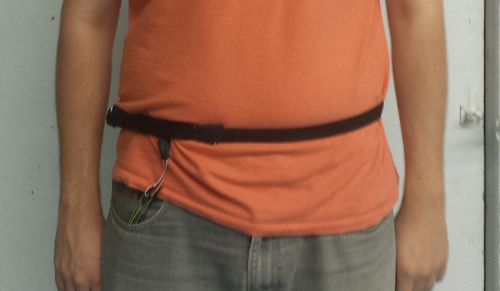Proposal: “Noise” by Connor Brem (2014)
“Noise” will be a collaborative, physical music-looping device.
“Sensation.” by Amy Friedman (2014)
We constantly have stresses in our life that overwhelm us from time to time. We dont realize the impact our stressful lifestyle can have on our bodies and overall well being. Stress can induce heart problems, skin conditions, increased heart rate, depression, anxiety and more. People need to take moments to just breathe and learn how to relax for a few moments in times of pressure to maintain healthy living.
Sensation. measures your pulse and allows you to understand your heart palputations visually through a wearable lighting system. If your heart is beating over the healthy limit of beats per minute, embedded motors rotate to create a massage to sooth your stress and focus upon another task to lower your heart rate. Users of Sensation. can also manipulate the patterns of the massage by moving your finger over a position sensor. The device uses an Arduino, softpot Position sensor, 4 cellphone motors, string LEDs, and a pulse sensor.
“Universal Rights (privacy)” by Epic Jefferson (2014)
Do concepts like privacy and basic rights only apply to humans? Do we believe we are the only species in the universe with the capacity to think on this level? What if we encounter extraterrestrials, only to find out we have not considered what rights we would grant them? How would they evaluate our relationship to other species on our own planet?
I hope to explore this topic a bit by “unobtrusively” embedding a monitoring system in various places with animal activity and capturing their presence in a shared space.
The System
A raspberry pi uses a python script to check for movement using a PIR sensor. The sensor triggers the webcam to capture the image of whatever is present and uploads it to a flickr account. Then, a ifttt recipe takes that image and posts it to a dedicaded tumblr account here Universal Rights.
“Conflict Capture” by Dan Russo (2014)
Every day in the United States there exists a conflict between motorists and cyclists on the road. Although Share the Road campaigns have become more commonplace, many motorists still don’t see cycling as a road- legal endeavor. Conflict capture seeks to document and explore the nature of human reaction to being behind cyclists in traffic. Awareness of this conflict becomes more important every day with many people choosing bicycles as an alternate form of transportation.
The hidden camera takes discrete photographs of motorists in their vehicles as they come in range of the device. A small on board computer takes the photos and pushes them to the web in real time. The device is powered by a Raspberry Pi, Bleduino micro controller, and a Sharp long range infrared range finder.
“Crystal Protocol” by Matt Sandler (2014)
This piece is mainly a response to The Artificial Kingdom by Celeste Olalquiaga.
In it the author discusses the invention of industry, mass production, and essentially modernity.
She relates it to Walter Benjamin’s writings on
the death of the aura for a piece of art,
the disintegration of its aura creating a debris which covers the object in a thin film like the dust which ignited makes the tail of a comet (birth of kitsch)
the historical and social psychological narratives of the mid-1800’s as a response to the above and coinciding with glass technology improvements, in the rise of popularity of, the “Arcade”(a mall-precursor), an attempt to reproduce the natural, fern-o-mania (collecting ferns), aquariums, souvenirs, snowglobes, and the building of an enormous glass building which to the likes has not been outdone to this date.
one particular passage struck me.
we suppose that in a few monthsthe glittering palace of iron and glass, the mostunique and remarkable building inthe world, will be as entirely a thing of the pastas the ice-palace of the Empress ofRussia that thawed in the summer sun.Illustrated London News On theCrystal Palace, Saturday October 11, 1851
This was written so shortly after The Crystal Palace and was oddly foreboding in the prediction of its novelty but also its imminent death (burnt down) 80 years later. The Ice-Palace of Anna Inanovna was built a mere 100 years prior and its ephemeral beauty melted, like all things must.
Less than 100 years after the melting of The Crystal Palace, and we have a new Crystal Palace.
A construction of transparency that we delude ourselves into believing will last forever.
The Crystal Protocol pings Google and traces the route the packets of information takes to be received.
The more “hops” from server to server, the more obfuscated and less direct our connection to that data.
Each hop is turned into an ASCII snowflake/debris floating the digital screen. By moving around the globe you can watch the snowflakes drift around and by shaking you can queue the quote above from the Illustrated London News.
The snowflakes are likely to increase with time. Eventually this snowglobe will not work at all.
The screen will power-on but wi-fi will be a thing of the past.
Following that, this snowglobe will be an antique, an artifact.
Following that it will be dust.
Folder for install and de-install Instructions
I apologize for the incorrect orientation and overall quality of the video. This is a temporary placeholder until 9/29/2014.
(I also plan to post a breakdown of methods/code/problems that were used/employed/encountered in this project along with lots of pictures of failure.)
portfolio_ms
Embedded + Wearable: “Homing Device” by Chris Williamson (2014)
This “Homing Device” is a belt containing a series of small vibration motors which allow it to give a strong directional sense to the wearer by vibrating whichever motor is pointing in a particular direction. This means the belt can essentially act as a persistent compass, its direction available to the user at all times, even unconsciously. Rather than pointing north like a normal compass, however, the user programs it with the location of their hometown and it always points there.
